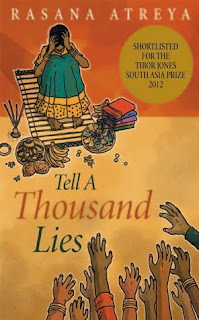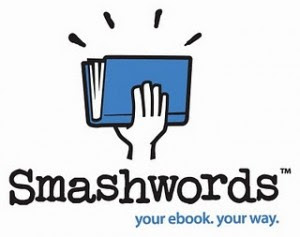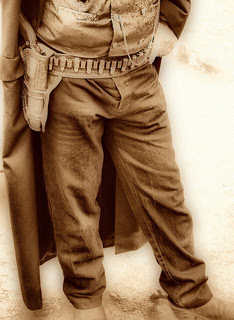If you're approaching cover design for the first time, or your book sales are slumping, here are five ways your cover can help sell your book:
1) BIG Author Name
Make sure people can see your name, even on the thumbnail of your cover.
2) Genre Appropriate Cover
Make sure your cover clearly indicates the genre of the story you've written (e.g., sci-fi, western, romance, and so on). DWS writes:
... [C]overs need to scream genre. For example, I had a book I did called “On
Top of the Dead” which was a pure science fiction story with aliens and
everything. So what did I do to make sure it didn’t sell? I put the
lower half of a dead body in a street on the cover, making it look like a
literary mystery. And, of course, it didn’t sell much. I just redid the
cover putting alien spaceships hovering over New York City on the cover
instead. Duh…
3) Write A Fantastic Blurb
a. Tell your reader what your story is about
Your readers
want to know what your book is about, not about the events in the book itself.
I'm re-watching Lord of the Rings. Everyone knows the tag line for this series: Frodo must overcome countless obstacles to destroy the One Ring in the fires of Mount Doom.
Actually, I just looked it up and here's the official tag line:
An innocent hobbit of The Shire journeys with eight companions to the
fires of Mount Doom to destroy the One Ring and the dark lord Sauron
forever.
Here's my take on this. What you talk about in your blurb, your tag line, is the goal, what the book(s) is all about. The blurb isn't the place to talk about Frodo's stay at the Prancing Pony, or meeting Bilbo in Rivendell or Gandalf's amazing scene with the Balrog ("
Thou shalt not pass!"). No. It is the place to tell your readers what your story is all about. What are the stakes?
That's one point. Another is:
b. Avoid passive verbs
Avoid them in your blurb and in your writing in general. DWS writes:
[W]hen I write a blurb, I ask myself what would make a reader buy this
book? But if you use nothing but passive voice, the reader will
automatically think your book is dull and never open it to the sample.
4) Use Common Themes
Have all your book covers for a series look similar
and have all your book covers in a certain genre look similar. How do you do this?
-
Use the same Name/Pen Name. One of my writer friends has one name for the first book in her series and another, a pen name, for the last two. My friend isn't indie published, a traditional publisher insisted she change names in the middle of the series and then didn't re-issue her first book! That is an extreme example, but try and use the same name for all your novels in the same genre so readers can find your books.
-
Use the same font. Make the title font the same for all books in a series.
For instance, here are a few covers from Kim Harrison's
Hollows series:
The font does differ
slightly from book to book, but there is always a young woman on the front cover and you can never quite see her face. The look and feel of the cover is largely the same from book to book and her name is always pominent.
Here are two of the covers from Kim Harrison's paranormal series for teens:
These books are a better example of what DWS is saying. Look at the title fonts, they're identical AND perfect for the genre. Same model, different poses, subtle difference in the background color, but they are both pastels. Most important, the author's name is clearly visible.
5) Professional Look And Feel
Here are DWS's pointers:
a. Fonts: Make sure you can see them easily, which means they should contrast with the background.
b. BIG author name easily readable even in the thumbnail.
c. Small text near the authors name "such as 'Author of (another book title).'"
d. Put your tag line on the front of your book.
Here's an example:
I don't know if that picture is high resolution enough for you to see, but DWS's tag line is, "A Step-by-Step guide to Publishing Your Own Books". Perfect. Now you know what the books is about and why you should buy it. By the way, Dean's book is available on Amazon.com and well worth the read.
e. The cover art must be genre appropriate, must look good as a thumbnail, and go well with the font you've chosen.
All the information in this post comes from Dean Wesley Smith's article,
The New World: Publishing: Killing Your Sales One Shot at a Time, and is well worth the read.
I'd like to add one more thing. When you're starting to put your cover together, when you're still in the 'getting ideas' stage, look at the covers of other books in your genre, especially those that are like your book. Make a list of 5 or 6. You don't want your cover to be too different from these because you want to tell your readers that if they buy your book that they will get a similar story.
Similar but unique! :p But that's a topic for another post.
I hope you read DWS's article, it's great. He's been doing this for decades and knows what he's talking about.
Cheers and good writing!
Other articles:
-
Writers & Blogging: Should You Host Your Own Blog?
-
Twylah: Turn Your Tweets Into A Blog
-
How To Build A Platform: Why Every Writer Needs A Website
Photo credit:
Excellent Book Covers and Paperbacks























